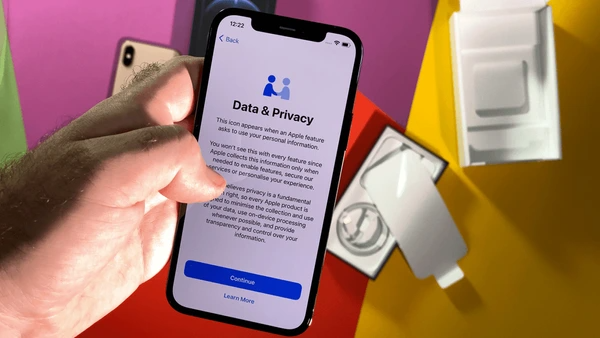Image Credit: Shutterstock
In today’s digital age, securing your smartphone is crucial as it often contains sensitive personal information. iPhones are generally known for their robust security features, but no device is entirely immune to hacking. Knowing how to tell if your iPhone is hacked can help you recognize signs of a compromised device, take immediate action to protect your data and privacy, and implement preventive measures. This comprehensive guide will walk you through various indicators of a hacked iPhone, preventive measures, and steps to take if you suspect your iPhone has been hacked.
Signs That Your iPhone Might Be Hacked:
1. Unusual Battery Drain
A sudden and unexplained decrease in battery life can be a red flag. If your iPhone’s battery is depleting faster than usual without heavy usage, it might indicate that malicious apps or processes are running in the background. These processes can be used to gather and transmit your data, impacting battery performance.
2. Increased Data Usage
Monitor your data usage regularly. If you notice an unusual spike in data consumption without any corresponding increase in your activities, it could be a sign that your device is transmitting data to an unauthorized source.
Also Read: How to see who doesn’t follow you back on Instagram.
3. Strange or Unusual Activity
Look out for any unusual activity on your iPhone, such as:
- Unexpected App Installations: New apps appearing on your home screen without your knowledge could indicate a compromise.
- Unusual Pop-Ups or Ads: Unexpected pop-ups or excessive ads may be a sign of adware or other malicious software.
4. Performance Issues
If your iPhone suddenly starts lagging, freezing, or crashing frequently, it could be a sign of malware. A compromised device might experience performance issues due to the presence of unauthorized software consuming resources.
5. Unexplained Changes to Settings
Check for any unexplained changes to your iPhone’s settings. For example:
- Unusual Account Settings: If you see unfamiliar email accounts or changes in your security settings, it could mean that your device has been compromised.
- Changed Passwords: Unauthorized changes to your passwords or security questions are a serious indicator of a hack.
6. Suspicious Messages or Calls
Keep an eye out for suspicious messages or calls:
- Unfamiliar Messages: Receiving strange text messages or emails with links or attachments from unknown sources could indicate phishing attempts or malware.
- Unusual Call Logs: Review your call history for any calls you did not make or receive.
7. Unusual Device Behavior
Be alert for any odd behavior, such as:
- Random Reboots: Your iPhone rebooting unexpectedly might indicate a problem or a hack.
- Overheating: If your device is running unusually hot, it could be working harder than usual due to malicious activity.
How to Check and Protect Your iPhone:
1. Update iOS Regularly
Ensure that your iPhone’s operating system is up to date. Apple frequently releases updates that include security patches to protect against vulnerabilities. Go to Settings > General > Software Update to check for updates.
2. Review Installed Apps
Regularly review the apps installed on your device. If you find any unfamiliar apps, investigate their origins. Uninstall any apps that you did not intentionally download.
3. Check for Suspicious Profiles
Go to Settings > General > VPN & Device Management to check if any unknown configuration profiles are installed. Delete any profiles that you do not recognize or remember installing.
4. Enable Two-Factor Authentication
For added security, enable two-factor authentication (2FA) for your Apple ID. This adds an extra layer of protection by requiring a verification code in addition to your password. Go to Settings > [Your Name] > Password & Security > Two-Factor Authentication.
5. Run a Security Scan
Although iOS is designed to be secure, running a trusted security scan or security app can help identify potential threats. Be cautious and use reputable security apps from the App Store.
6. Reset Your iPhone
If you strongly suspect that your iPhone has been hacked and other measures have not resolved the issue, consider performing a factory reset. This will erase all data and settings from your device, returning it to its original state. Be sure to back up your important data before doing this. Go to Settings > General > Reset > Erase All Content and Settings.
Also Read: How to see who doesn’t follow you back on Instagram.
Conclusion
Detecting a hack on your iPhone requires vigilance and awareness of any unusual behavior or signs. By regularly monitoring your device’s performance, checking for unauthorized changes, and maintaining up-to-date security practices, you can significantly reduce the risk of a successful hack. If you suspect that your iPhone has been compromised, take immediate action to protect your data and consider consulting with Apple Support for further assistance.
FAQs
1. Can my iPhone be hacked even if it is running the latest iOS version?
While running the latest iOS version significantly reduces the risk of hacking due to security patches and updates, no device is entirely immune to sophisticated attacks. Regular updates and vigilance are essential for maintaining security.
2. What should I do if I find unfamiliar apps on my iPhone?
Investigate the origin of any unfamiliar apps. If you do not recognize the app, it is best to uninstall it immediately. Also, consider changing your passwords and monitoring your device for further unusual activity.
3. How can I tell if my iCloud account has been compromised?
Check your iCloud account settings for any unauthorized changes, unfamiliar devices, or recent activity that you do not recognize. Enable two-factor authentication for added security and review your account’s login history if possible.
4. Is it safe to use security apps from the App Store?
While many security apps on the App Store are reputable, it is essential to choose apps with good reviews and a strong reputation. Avoid apps with poor ratings or those that require excessive permissions.
5. How can I prevent my iPhone from being hacked in the future?
To prevent future hacks, ensure your iPhone is always updated to the latest iOS version, use strong and unique passwords, enable two-factor authentication, avoid downloading apps from untrusted sources, and be cautious of phishing attempts and suspicious links.




